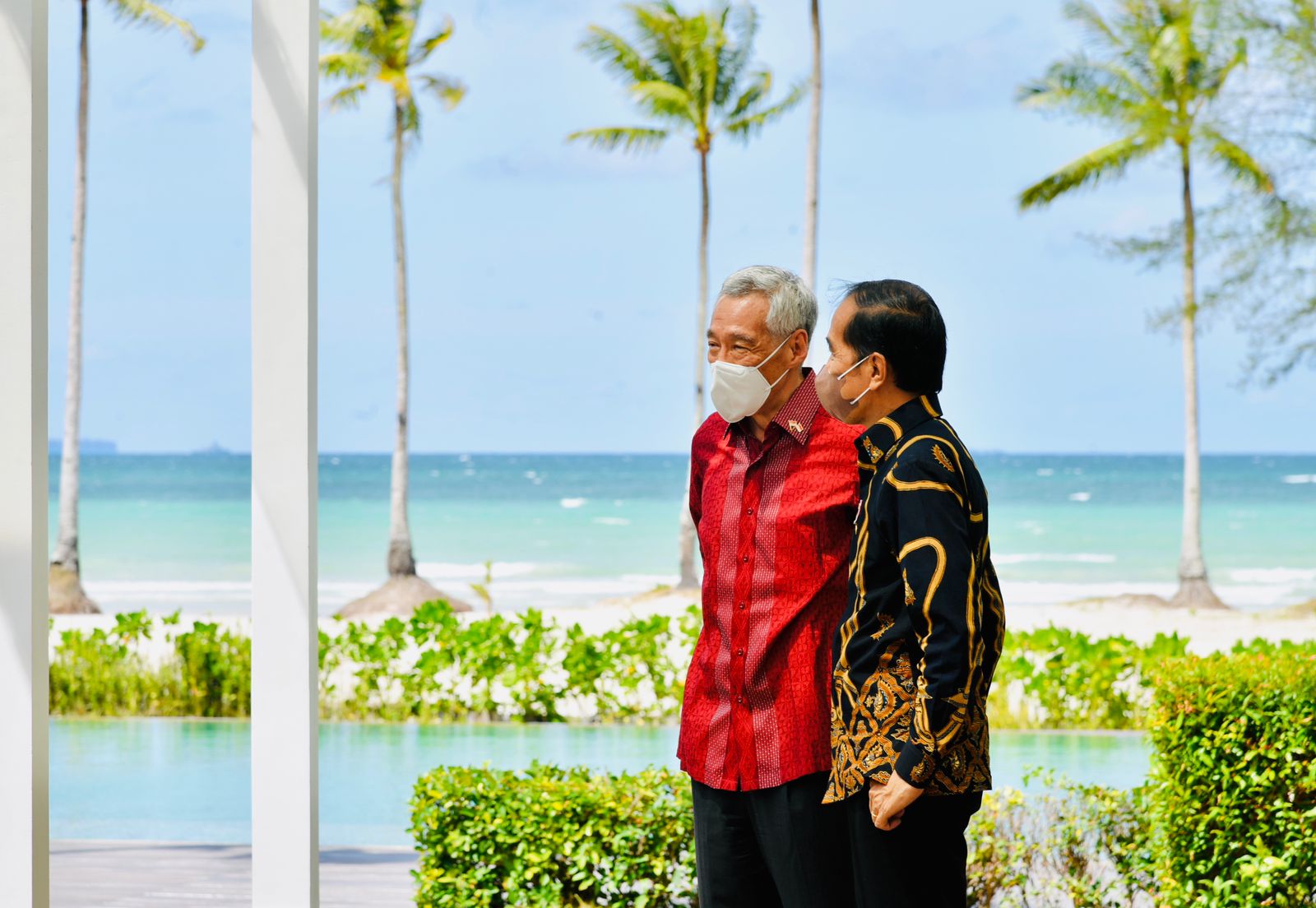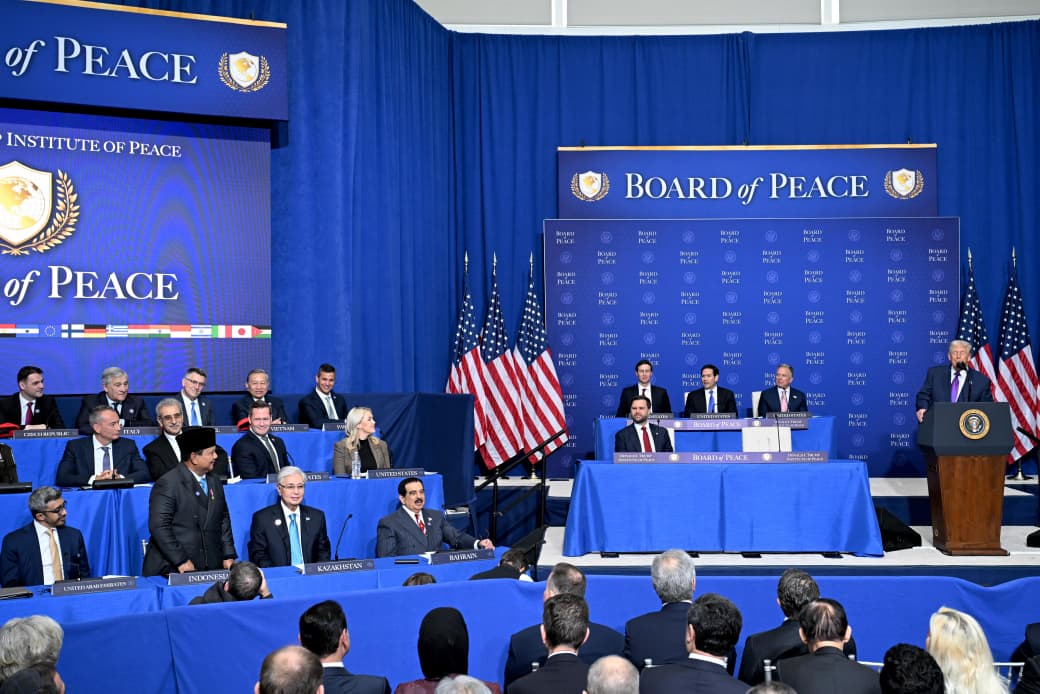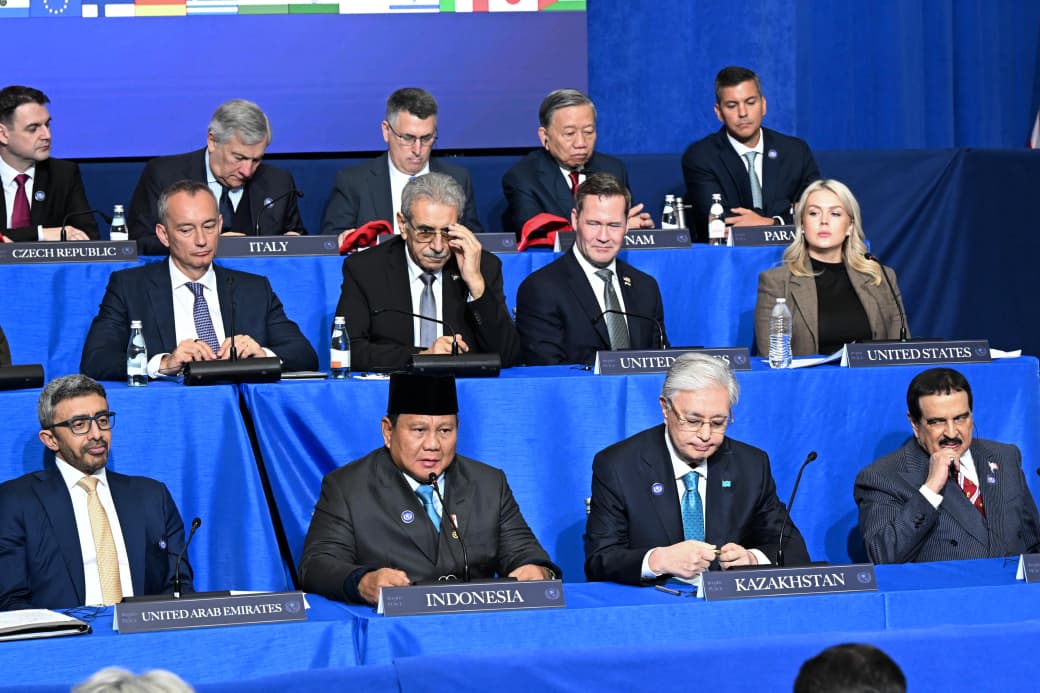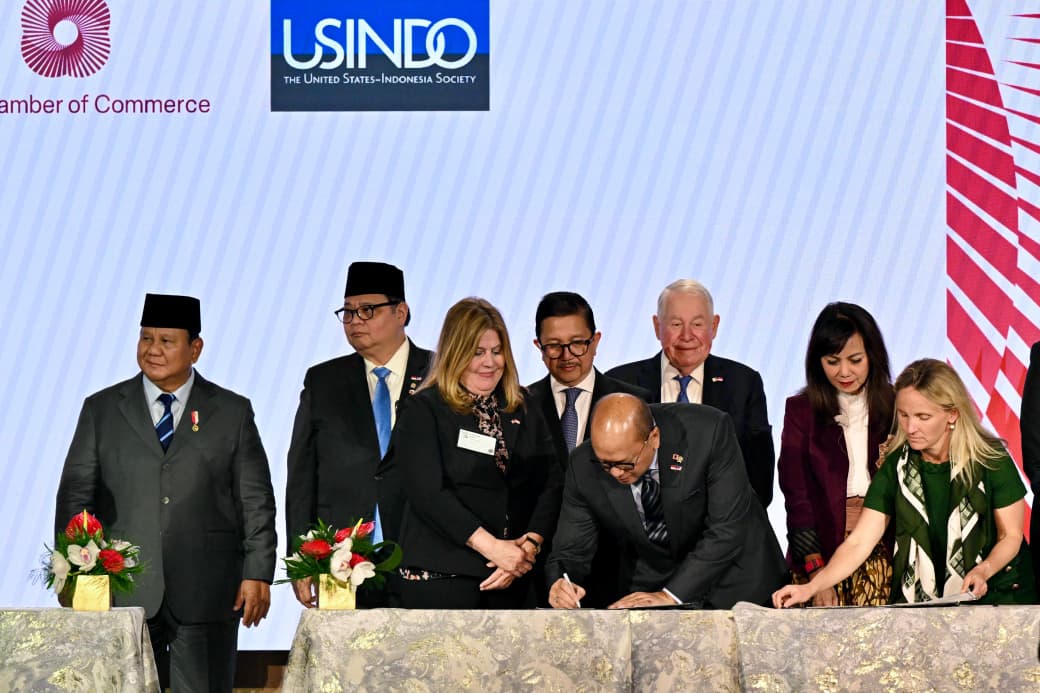Indonesia, Singapore Sign Extradition Treaty

President Jokowi receives a courtesy call from PM Singapore Lee Hsien Loong, at the Sanchaya Resort Bintan, Riau Islands province, Tuesday (25/1). (Photo: BPMI/Muchlis Jr)
Indonesia-Singapore Extradition Treaty was officially signed on Tuesday (25/1), in Bintan, Riau Islands province.
The agreement was signed by Indonesia’s Minister of Law and Human Rights Yasonna H. Laoly and Singapore’s Minister of Home Affairs and Minister of Law K. Shanmugam, witnessed by Indonesian President Joko “Jokowi” Widodo and Singaporean Prime Minister Lee Hsien Loong.
Yasonna explained that the Indonesia-Singapore Extradition Treaty had a retroactive period (come into force on the date of its promulgation) for the past eighteen years. This is in accordance with the provisions on the maximum expiration as stipulated in Article 78 of the Indonesian Criminal Code.
“In addition to the retroactive period, this Extradition Treaty also agrees that the determination of the nationality of the perpetrator of a crime is determined at the time the crime is committed. This is to prevent the privileges that may arise as a result of changing the nationality of the perpetrator of a criminal act in order to avoid legal proceedings against him,” said Yasonna after the signing.
According to this Treaty, there are 31 types of criminal acts whose perpetrators can be extradited, including corruption, money laundering, bribery, banking, narcotics, terrorism, and the financing of activities related to terrorism.
“Indonesia has also succeeded in convincing Singapore to agree on an Extradition Treaty that is progressive, flexible, and anticipatory towards the current and future developments, forms and modes of criminal acts. The Indonesia-Singapore Extradition Treaty allows both countries to extradite criminals who, although the types of crimes are not explicitly stated in this agreement, have been regulated in the legal systems of the two countries,” he explained.
Yasonna explained that the scope of the Indonesia-Singapore Extradition Treaty is that both countries agree to extradite any person found to be in the territory of the requested country and sought by the requesting country for prosecution or trial or execution of punishment for extraditable criminal acts.
“This extradition treaty will create a deterrence effect for perpetrators of criminal acts in Indonesia and Singapore,” he said.
In addition, , the Indonesia-Singapore Extradition Treaty will narrow the space for criminals in Indonesia to escape. This is because Indonesia already has agreements with partner countries in the region, including Malaysia, Thailand, the Philippines, Vietnam, Australia, the Republic of Korea, the People’s Republic of China, and Hong Kong.
In particular, for Indonesia, the enactment of the Extradition Treaty can effectively reach perpetrators of past crimes and facilitate the implementation of Presidential Decree of the Republic of Indonesia Number 6 of 2021 on Task Force for Handling State Collection Rights for Bank Indonesia Liquidity Assistance Funds.
Prior to the official signing of the Indonesia-Singapore Extradition Treaty, the Indonesian Government had begun working on it since 1998. Following is the timeline for the Indonesia-Singapore Extradition Treaty:
1. Efforts to establish the Indonesia-Singapore Extradition Treaty have been initiated by the Government of Indonesia since 1998 at every opportunity, both in bilateral and regional meetings with the Government of Singapore.
2. On 16 December 2002, at the Bogor Presidential Palace, West Java province, Indonesian President Megawati Soekarnoputri and Singaporean Prime Minister Goh Chok Tong held a bilateral meeting to discuss matters related to the development of cooperation between the two countries in all fields. One of the outcomes of the meeting was an agreement stating that Indonesia and Singapore would draw up an action plan for the establishment of the Indonesia-Singapore Extradition Treaty.
3. On 27 April 2007, at the Tampaksiring Palace, Bali province, Indonesian Minister of Foreign Affairs Hassan Wirajuda and Singaporean Foreign Minister George Yeo signed the Indonesia-Singapore Extradition Treaty witnessed by Indonesian President Susilo Bambang Yudhoyono and Singaporean PM Lee Hsien Loong.
4. The Indonesia–Singapore Extradition Treaty signed in 2007 cannot be enforced by the two countries because the Governments of Indonesia and Singapore have not ratified the Treaty.
Note: The reason the two countries have not ratified the Indonesia–Singapore Extradition Treaty is because both governments agreed that the ratification will be carried out in parallel with the ratification of the Indonesia–Singapore Security Cooperation Agreement. In its development, Commission I of the Indonesian House of Representatives for the period of 2004–2009 in a Working Meeting with the Indonesian Foreign Minister on 25 June 2007 refused to ratify the Security Cooperation Agreement that had been signed so that it had an impact on the ratification process of the Indonesia-Singapore Extradition Treaty.
5. On 8 October 2019, the Indonesia-Singapore Leaders’ Retreat was held to re-discuss the Agreement to Adjust the Indonesia-Singapore Realignment Flight Information Region/FIR and the Security Cooperation Treaty.
6. Following up on the results of the 2019 Leaders’ Retreat, the Indonesian Minister of Law and Human Rights then proposed that the Extradition Treaty which was paralleled from the beginning with the Security Cooperation Treaty was also re-discussed in the framework of discussion.
7. The Indonesia-Singapore Extradition Treaty was signed at the Indonesia-Singapore Leaders’ Retreat, in Bintan, Riau Islands province, 25 January 2022. (PR of Ministry of Law and Human Rights/UN) (EST/MMB)







